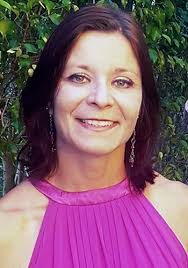Ania Knapinska, Ph.D.

Bringing Better Treatments Out of the Lab
By Lynn Laurenti
Ania Knapinska, Ph.D., brings a wealth of experience, talent and dedication to her multiple professional roles. She is a research professor in molecular pharmacology in the departments of chemistry and biochemistry, an associate director of the Center of Molecular Biology and Biotechnology, and CEO of MMP Biopharma Inc., a company she co-founded with Gregg Fields, Ph.D., executive director of the FAU Institute for Human Health and Disease Intervention (I-Health).
Since its creation in 2017, MMP Biopharma has focused on finding novel therapeutic strategies for people with diseases characterized by the degradation of collagen, such as osteoarthritis. There is currently no cure for this painful joint condition, which is the leading cause of knee and hip replacements. MMP Biopharma is building upon knowledge gainedthrough the Fields laboratory’s osteoarthritis project, which Knapinska has overseen for seven years. An exciting breakthrough came when FAU researchers discovered a molecule with the ability to inhibit a crucial enzyme that causes cartilage destruction in osteoarthritis.
Knapinska is also a co-founder of Deep Science (along with Silke Dodel, Ph.D., a visiting assistant professor in the Charles E. Schmidt College of Science), a startup that develops artificial intelligence and cognitive computing solutions to generate actionable insight from biomedical and healthcare data. Deep Science helps to accelerate progress in the biomedical sciences by helping clients conquer information overload and leverage biological complexity.
Both companies have achieved recognition in the annual FAU Tech Runway competition for start-up assistance for promising new enterprises. MMP won a spot in Venture Class 5 and Deep Science in Venture Class 7.
Knapinska holds a bachelor’s degree in biotechnology from FAU and a Ph.D. in molecular pharmacology from Rutgers University, where she was a National Science Foundation Integrative Graduate Education and Research Traineeship (IGERT) fellow. IGERT is the National Science Foundation’s flagship interdisciplinary training program.
Prior to joining FAU’s research faculty in 2015, Knapinska was a senior scientist and laboratory manager at the Torrey Pines Institute for Molecular Studies and a research associate at Scripps Florida. She has authored or co-authored many articles in peer-reviewed journals.
Knapinska is fluent in English, Polish and Spanish.
Here is more information about her, in her own words:
I became a scientist because I wanted to help millions of people. I also have passion for creative and detective work. Developing drugs for diseases affecting people’s health really combines all these passions.
During my undergraduate studies Dr. Nwadiuto Esiobu (who is still a professor at FAU) taught a very interesting lab-based biotechnology course. I was already getting interested in science at that time, but she inspired me to pursue science full-time. I really appreciated her passion for teaching and encouraging students.
To provide treatments and better diagnostics for people suffering from diseases caused by dysregulated collagen turnover, such as osteoarthritis, cancer metastasis, cancers affecting the bone and others.
FAU delivers a great platform for research by providing excellent lab facilities, access to graduate and undergraduate
students and facilitating intra-institutional and interdisciplinary research interactions. Over the last few years, we
have seen more and more support for research, and it is exciting to be taking part in this research “revolution.” The
presence of the Tech Runway Program, modeled after the world-class MIT program, gives hugely needed support and
encouragement to take our research and inventions into real-world application.
This extraordinary program gives FAU researchers a big advantage over other institutions by providing mentorship,
business training and an entrepreneurship hub. In addition, the proximity to Scripps Florida and Max Planck Institutes
in Jupiter gives us a huge advantage to be able to collaborate with other world-class researchers, stimulating new ideas
and research directions.
I currently manage Dr. Fields’ laboratory, which includes 11 members of all ages. Every year I mentor from two to seven students, ranging from high school age to the Ph.D. level.
It takes a lot of dedication to pursue career in research. However, a multitude of directions can be pursued after a student gains scientific knowledge and research experience.
I hope to improve people’s quality of life by bringing better treatments and diagnostics from the lab and into the marketplace. I also hope to inspire many young people to pursue careers in science, as well as follow their dreams and aspirations.